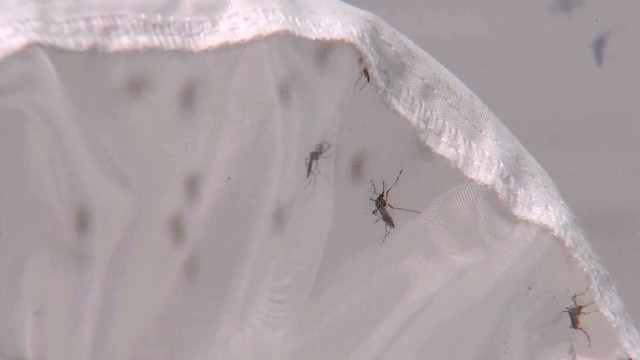-
Tips for becoming a good boxer - November 6, 2020
-
7 expert tips for making your hens night a memorable one - November 6, 2020
-
5 reasons to host your Christmas party on a cruise boat - November 6, 2020
-
What to do when you’re charged with a crime - November 6, 2020
-
Should you get one or multiple dogs? Here’s all you need to know - November 3, 2020
-
A Guide: How to Build Your Very Own Magic Mirror - February 14, 2019
-
Our Top Inspirational Baseball Stars - November 24, 2018
-
Five Tech Tools That Will Help You Turn Your Blog into a Business - November 24, 2018
-
How to Indulge on Vacation without Expanding Your Waist - November 9, 2018
-
5 Strategies for Businesses to Appeal to Today’s Increasingly Mobile-Crazed Customers - November 9, 2018
FDA expands Zika screening to all US blood centers
The Food and Drug Administration has recommended screening the entire U.S. blood supply for the Zika virus, it announced today, noting that screening donated blood is already underway in Florida and Puerto Rico.
Advertisement
Exposure to the Zika virus during the first trimester, including before a woman even realizes she is pregnant, has been linked to a devastating birth defect called microcephaly, in which the infant is born with a small head and underdeveloped brain.
The revised guidance marks a major expansion from a February 16 advisory that limited such screening to areas with active Zika virus transmission. Currently, it is conducting Zika tests in five southeastern states and will expand testing to four additional states in the south central and southwestern USA over the next two weeks, the organization said in a statement.
Zika has been found in Central and South America, and on some Caribbean islands. The United States has documented 8,000 cases of Americans who acquired the virus overseas and 2,000 infected through local transmission.
“Given the frequency of travel of individuals within the United States, there is the risk that people without symptoms infected with Zika virus could donate blood and thereby transmit Zika virus”, Marks said.
A Maryland man who was exhibiting no symptoms of Zika has given the virus to his female sex partner – the first such case in the US, officials said Friday.
“In addition, donors are asked whether they’ve had sex with someone who has been in an area where Zika has been prevalent for the last three months and those people are also unable to donate blood at this time”.
They say they are now reviewing the new Zika testing guidelines.
Peter Marks, director of the FDA’s Center for Biologics Evaluation and Research, said the advisory was put out because “there is still much uncertainty regarding the nature and extent of Zika virus transmission”.
The most common symptoms of Zika are fever, rash, joint pain, and pink eye (conjunctivitis).
“Over 8,000 travel associated and over 2,000 non-travel associated cases of Zika have been reported in the United States and USA territories”, Marks told reporters.
So far, 43 cases of locally transmitted Zika have been identified in the USA, all in Florida.
Zika is primarily spread by the bite of an Aedes aegypti mosquito, but it can also be transmitted sexually.
Here in Colorado, the Bonfils Blood Center tests for about a dozen viruses, including HIV and West Nile Virus.
So far, there are 61 travel related cases of Zika in Georgia, according to the Georgia Department of Public Health. In other cases of sexual transmission, the virus was spread by someone who at some point had symptoms. Roche Molecular Systems’ Cobas Zika test became available in April, and Hologic Inc.’s Procleix test was put to use for Zika screening in June.
Advertisement
Both tests are considered “investigational”, meaning they’ve been scrutinized by the FDA but have not yet passed all of its usual requirements. The FDA said that blood banks in all other states need to start testing within the next three months and Bonfils said it will.





























